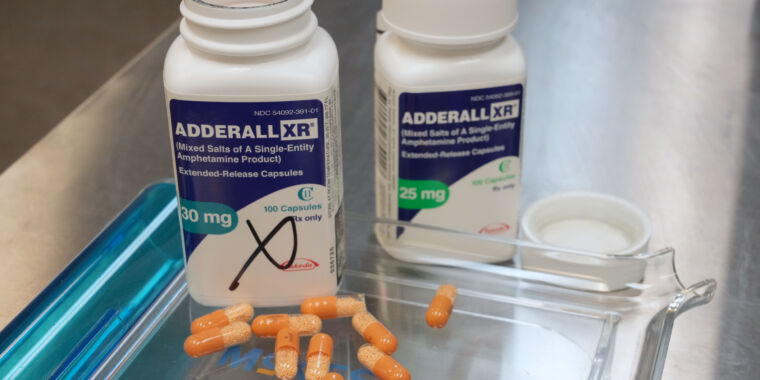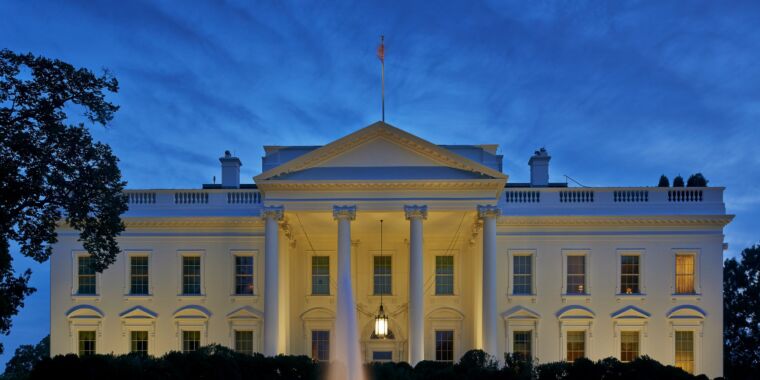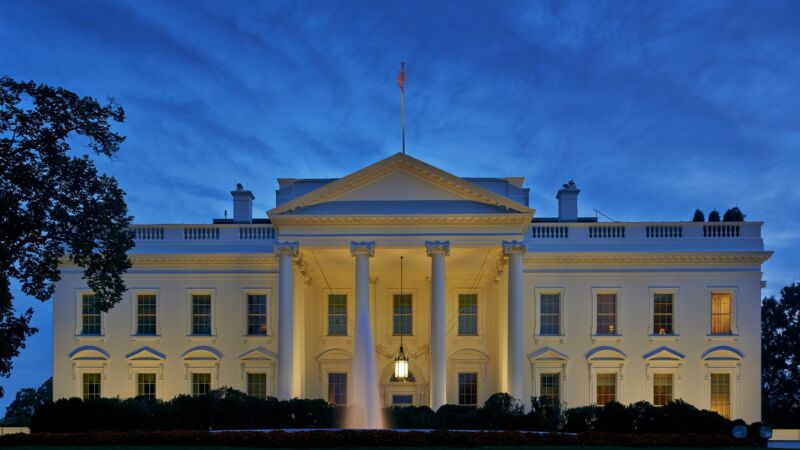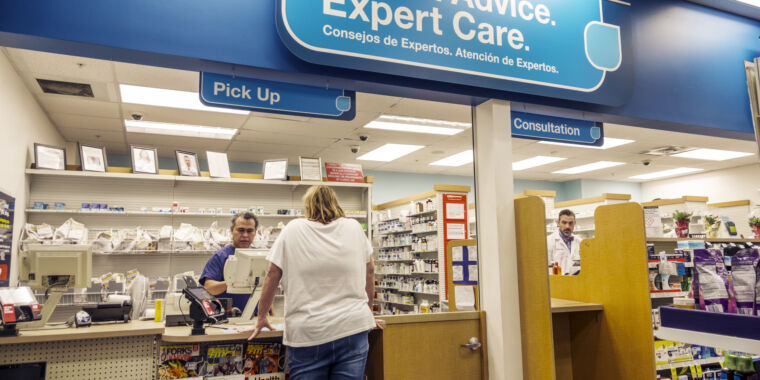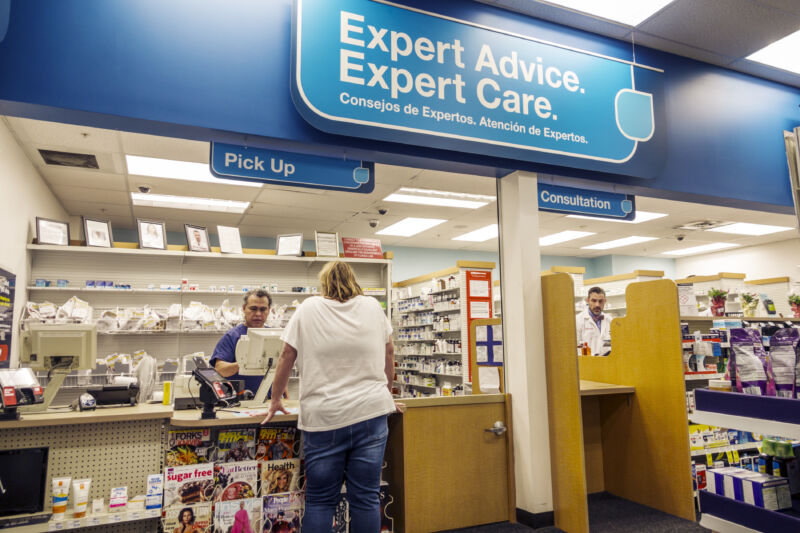US drug shortages reach record high with 323 meds now in short supply
Terrible —
The shortages affect everything from generic cancer drugs to ADHD medication.
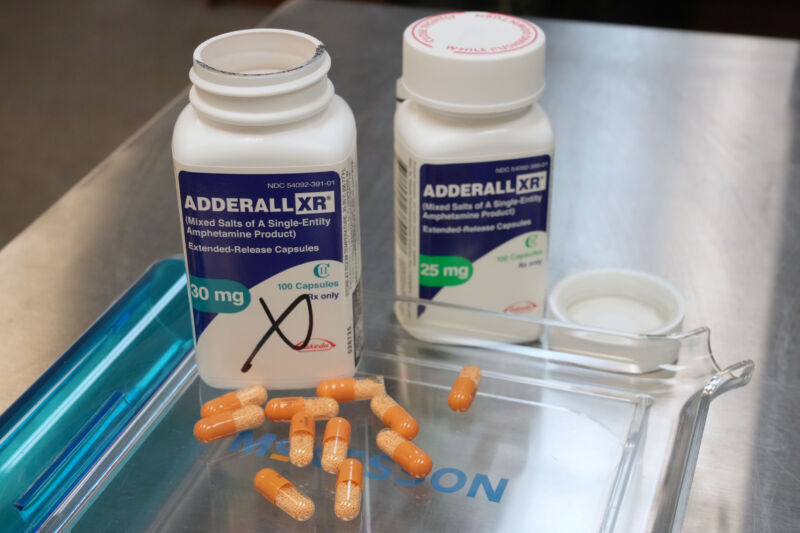
Enlarge / Takeda Pharmaceutical Co. Adderall XR brand medication arranged at a pharmacy in Provo, Utah, in November 2023.
Drug shortages in the US have reached an all-time high, with 323 active and ongoing shortages already tallied this year, according to data collected by the American Society of Health-System Pharmacists (ASHP).
The current drug shortage total surpasses the previous record of 320, set in 2014, and is the highest recorded since ASHP began tracking shortages in 2001.
“All drug classes are vulnerable to shortages,” ASHP CEO Paul Abramowitz said in a statement Thursday. “Some of the most worrying shortages involve generic sterile injectable medications, including cancer chemotherapy drugs and emergency medications stored in hospital crash carts and procedural areas. Ongoing national shortages of therapies for attention-deficit/hyperactivity disorder [ADHD] also remain a serious challenge for clinicians and patients.”
Erin Fox, associate chief pharmacy officer of University of Utah Health, told CBS MoneyWatch, that most of the drugs in short supply are generic, older products, and around half are injectable drugs that require more stringent manufacturing processes.
There are myriad reasons for the hundreds of drug shortages now facing doctors and patients, many of which remain unclear. But, as Ars has reported before, the root cause of shortages of low-cost, off-patent generic drugs is well established. These drugs have razor-thin to non-existent profit margins, driven by middle managers who have, in recent years, pushed down wholesale prices to rock-bottom levels. In some cases, generic manufacturers lose money on the drugs, disincentivizing other players in the pharmaceutical industry from stepping in to bolster fragile supply chains. Several generic manufacturers have filed for bankruptcy recently.
For other drugs, the situation is more complicated. The ADHD drug Adderall, for instance, has been in critical shortage since October 2022, causing millions of patients around the country to struggle to fill their prescriptions. It began when a manufacturing delay for one manufacturer kicked off a shortfall. Although that problem has since been resolved, it came amid a significant increase in Adderall prescriptions, which spiked further during the pandemic when telehealth prescribing became more common. Additionally, because Adderall—made of amphetamine-mixed salts—is a controlled substance, the Drug Enforcement Administration sets limits or “quotas” on how much of it manufacturers can make. Such quotas can exacerbate shortages, ASHP said.
But, in a joint letter with the Food and Drug Administration last August, the DEA said that, by its data, manufacturers of amphetamine products (including Adderall) only sold approximately 70 percent of their allotted quotas in 2022. That meant that there were approximately 1 billion more doses that they could have produced but did not make or ship. At the time, the agencies said its 2023 data was trending in the same direction.
In 60 percent of cases, manufacturers do not know or do not provide reasons why their drugs fall into short supply, ASHP found.
The organization has put forth policy recommendations to prevent shortages and improve supply chains, advocating for federal and regulatory changes. “Much work remains to be done at the federal level to fix the root causes of drug shortages,” Abramowitz said. “ASHP will continue to engage with policymakers regularly as we guide efforts to draft and pass new legislation to address drug shortages and continue to strongly advocate on behalf of our members for solutions that work.”
US drug shortages reach record high with 323 meds now in short supply Read More »
